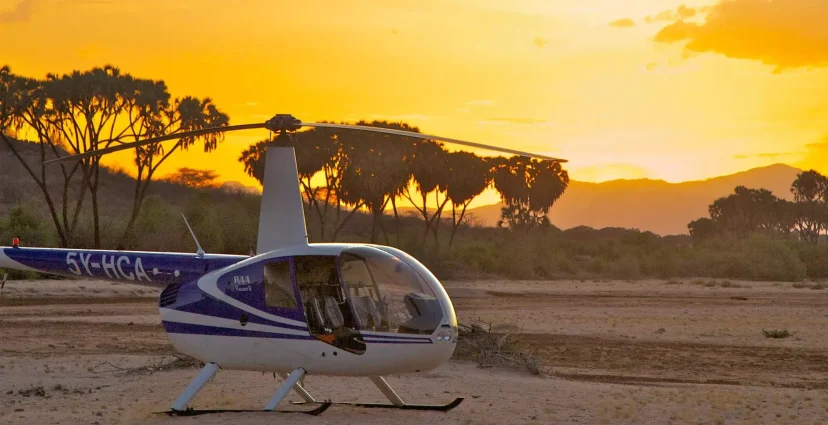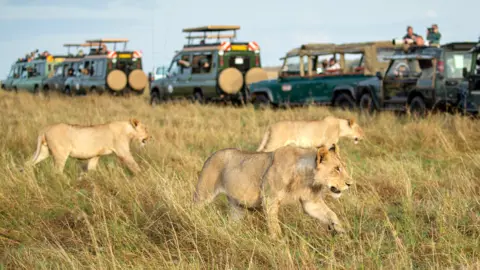Top Tips To Picking Kenya Day Tours
Wiki Article
What Transportation Arrangements Should I Be Aware Of When I Am On Vacation In Mombasa?
To make sure that your trip to Mombasa in Kenya is enjoyable and hassle-free You must be aware of the different choices of transportation that are available. Here are the primary choices for transportation:
1. How do I reach Mombasa
Moi International Airport (MBA) Moi International Airport (MBA), the principal airport in Mombasa, is situated in Moi. The airport is able to handle international and domestic flights. A number of major airlines offer flights between and to Mombasa.
By Train - The Madaraka operated Kenya Railways offers a modern rail service that is well-equipped between Nairobi Kenya, Nairobi, as well as Mombasa.
By bus: Many bus companies, such as Modern Coast and Coast Bus provide routes between Mombasa and the other cities in Kenya.
2. Local Transport in Mombasa
Taxis and Ride-Hailing services Taxis are easily accessible. Uber and Bolt, two well-known ride-hailing services in Mombasa provide easy transportation options.
Three-wheeled vehicles, also known as tuk-tuks are an inexpensive and popular way to move around in the city. They are great for shorter distances.
Matatus - These minibuses are for sharing that travel through certain routes. They are the most frequently used form of transport. Although they're a more affordable alternative, they can be noisy and uncomfortable.
Boda bodas - Motorbike taxis can be used for fast and easy travel, particularly in areas that have a lot of traffic or shorter distances.
3. Car Rentals
You can rent a car in the airport as well as the city. International and local car rental companies provide a wide range of vehicles. Be aware of local driving regulations and traffic regulations.
Services for chauffeurs for those who aren't keen on driving yourself, there are chauffeur-driven rental car services available.
4. Ferry Services
Likoni-Ferry: This ferry connects Mombasa with the south part of Mombasa which is on the mainland. This ferry is essential for accessing the beaches of the southern part of the city. It is free for pedestrians. Cars pay a cost.
5. Excursions and day trips
Tour operators: Numerous tour operators offer excursions to popular tourist destinations such as the Mombasa Marine National Park and Fort Jesus as well as close beaches like Diani and Nyali. The tours typically include transportation.
Public Transportation: For solo travelers, using a combination of matatus, tuk-tuks, and taxis can help reach many places.
6. Cycling and walking
Certain areas provide bicycle rentals, especially those on beaches.
Walking is feasible at some areas in Mombasa. This includes Mombasa's Old Town and the areas along the beach.
7. Tips for travelers
Only use taxis if they are reputable and avoid public transportation at night. You should be careful with your valuables.
Negotiation is crucial for taxis and taxis and. Meters are not utilized in the majority of cases.
Traffic: Expect a lot of traffic, particularly around Likoni Ferry or central business district.
If you are well-informed about the different choices of transportation and make the necessary arrangements, your trip will be stress-free. View the most popular mombasa watamu snorkeling for website tips including african safari tours, travel tours in kenya, kenya tours and safaris, safaris beach, travel tour companies, kenya safari holiday packages, african safari packages, safari mombasa kenya, safari trips in africa, kenya tours and more.

What Accommodation Considerations Should I Be Aware Of When I Am On Vacation In Mombasa?
If you're looking to enjoy your holiday in Mombasa Kenya It is crucial to choose the most suitable hotel. Here are some important considerations to consider:
1. Types of Accommodation
Mombasa is home to a variety of hotels ranging from budget-friendly to luxurious. Hotels are situated right on the beachfront. They have amenities like restaurants, pools, and tours.
Resorts: These are typically more expensive and offer a variety of services, including all-inclusive choices including water sports, entertainment.
Guesthouses and B&Bs for an extra personal touch staying in guesthouses and B&B establishments. They provide the feel of a home and provide local hospitality.
Vacation Rentals: Airbnb offers flexibility, and it can be a good value if you're staying for a longer amount of time or in a larger group.
Hostels: Travelers who are on a budget might prefer hostels. These hostels provide basic amenities and the chance to connect with fellow travelers.
2. Location
Choose a place to stay close to the attractions you want to visit. The most popular areas are Nyali Beach, Diani Beach, and the city center near Fort Jesus.
If you are planning to travel to various areas in Mombasa take into consideration the accessibility of public transportation, or the closeness of major roads.
Security: Check the security rating of the neighborhood where your hotel is situated. Be sure to stay in reputable, well-known areas.
3. Amenities and Services
Internet Access: Ensure the hotel has reliable Wi-Fi, especially if you need to stay connected.
Make sure the accommodation has on-site dining or nearby dining alternatives.
If these facilities are important to you, then you must look them up.
Family-friendly Features: If you're travelling with children, think about accommodations that offer family-friendly amenities like kids' clubs, babysitting services, and child-friendly pools.
4. Reviews and Ratings
Guest Reviews: Read reviews on TripAdvisor or Booking.com to find out about other travelers' experiences.
Consider accommodations with high ratings, especially for cleanliness, overall service, and experience.
5. Budget
Cost: Establish your budget and find accommodations that fit within it. Prices can be very different in relation to where you live, what type of accommodation you pick, and the time of year.
Hidden Costs: Be aware of extra charges, such as resort fees, parking charges, or fees for additional amenities.
6. Cultural Experience
Local and. international: Decide whether you prefer a hotel experience that is inspired by the international chains or with a more local ambiance and the culture.
Community-Based Tourism: Take a look at eco-lodges and other community-based tourist options that provide a full cultural experience, and help local communities.
7. Booking Flexibility
If your travel plans change, make sure you check the cancellation policy to determine if you have any flexibility.
Make reservations using reliable booking sites that offer assistance from a customer service representative, secure payment options and 24/7 customer support.
8. Special Requirements
Accessibility: Ensure that the facility is accessible for wheelchair users, or that it is able to meet any dietary needs.
Pets: When traveling with your pet make sure you inquire about the accommodations' pet policy.
9. Security
Secure environment: Select accommodations that provide security 24 hours a day, such as security personnel and secured parking.
Personal Belongings - Make sure you have a safe in the room or a safe place to keep your valuables.
Take note of these aspects to find the perfect hotel in Mombasa that will meet your requirements and enhances your vacation experience. See the recommended kenya day tours for blog advice including tours and safaris, kenya safari packages, tour company in kenya, kenya travel packages, kenya africa travel, kenya mombasa holiday packages, tours & safaris, kenya tours and safaris, trip tour companies, safari tour and more.

What Are The Environmental Responsibilities I Should Be Aware Of While On Holiday In Mombasa Kenya?
It is crucial to be responsible for the environment while traveling in Mombasa. This will help preserve the beauty and diversity of the region. Here are some important considerations for the environment:
1. Sustainable Accommodation
Eco-friendly Hotels: Select hotels that are committed to sustainability. Check for certifications such as Eco-Tourism Kenya, or other eco-labels.
Participate to hotel initiatives for conservation of water and energy. Reuse towels and linens. Turn off lights and air conditioning when they are not used.
2. Responsible Wildlife Viewing
Be respectful of wildlife: Maintain an appropriate distance from animals to avoid disturbing them. Your guide on your tour will provide you with instructions.
Beware of feeding animals. The act of feeding wild animals may alter their diets and behaviors.
Leave No Trace. Do Not Litter in parks or wildlife reserves. Bring your trash home and properly dispose of it.
3. Plastic Reduction
Minimize Plastic Use: Avoid single-use plastics. Keep a water bottle that is reusable or shopping bag as well as tools.
Help local initiatives. Participate in local beach clean-ups or organizations that work to minimize the amount of plastic that is contaminating our oceans.
4. Water Conservation
Make use of water wisely: Mombasa experiences water scarcity problems. Take shorter showers and shut off the faucets when you are not in use.
Eco-Friendly Product: Reduce water pollution through the use of biodegradable, eco-friendly products.
5. Energy Conservation
Reduce Energy Consumption - Limit the use of air conditioning and disconnect electronic devices when they are not in use.
Support Renewable Energy: Choose accommodations and tour operators that make use of renewable energy sources.
6. Sustainable Transportation
Public Transport: If you can take public transport such as buses and matatus to reduce your carbon foot print.
You can consider using bicycles for short distances. Some areas offer eco-friendly tuk-tuks.
7. Supporting Local Economic Development
Buy Local: Support your local economy by buying products and food items from local artisans and vendors.
Fair Trade: Purchase items with fair trade certifications to ensure that producers in your area are fairly compensated.
8. Environmental Education
Learn and Share Learn and Share - Get educated about the environment in your area, as well as conservation efforts. Share with others the information you have gathered to increase awareness.
Respect local cultural practices Respect and learn local customs within the realm of environmental conservation.
9. Marine Conservation
Responsible Snorkeling and Diving Do not touch or step directly onto coral reefs. To ensure marine life is protected make sure you use a reef-safe sunblock.
Do not throw trash into the sea. Support or participate in marine conservation efforts.
10. Ethical Souvenirs
Avoid products from wildlife Avoid purchasing products made from endangered species like ivory or tortoiseshell.
Sustainable Materials - Select souvenirs made with recycled or recyclable materials.
11. Take part in Conservation Activities
Volunteer: Think about taking part in local conservation projects or tourism-related initiatives for the community.
Support local NGOs. Donate money or support conservation organizations and non-governmental organizations working in your region to help protect the environment.
12. Responsible Travel practices
Size of Group Small Group Size: Travel in small groups to reduce environmental impact.
Eco-Tours: Select tour operators who adhere to eco-friendly practices and are committed to sustainable development.
Remember that these obligations will assist you to preserve Mombasa’s precious natural resources, and maintain the beauty and variety of the region for the future generation. View the recommended Sgr transfer to Mombasa Airport for more examples including mombasa packages, tours and safaris in kenya, tour and travels, kenya safari and beach, mombasa packages, african safari tours, african safari tours, kenya tours, african safari excursions, kenya safari beach and more.
